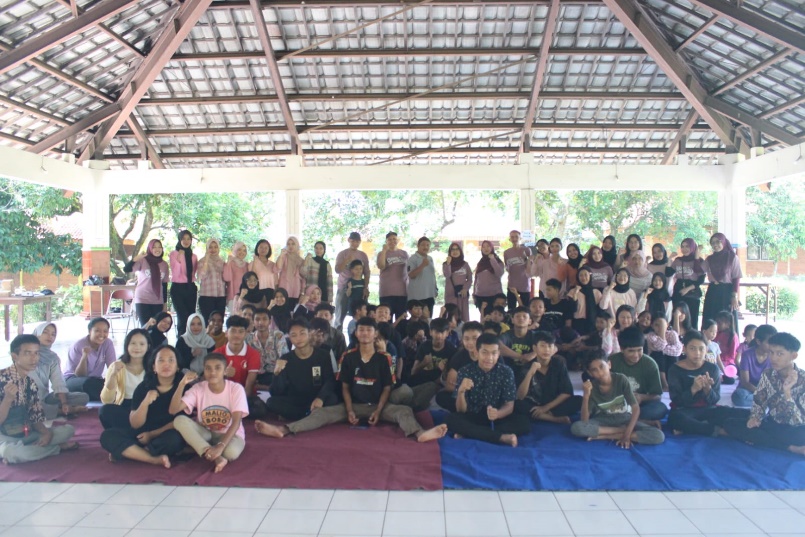Semarang, November 9, 2024 – The Department of Health Promotion and Behavioral Sciences (PKIP) Faculty of Public Health Universitas Diponegoro FKM UNDIP recently carried out a community service activity at SOS Village, focusing on delivering educational material through games for children. This activity aimed to increase knowledge and awareness about health among the children living in SOS Village in an interactive and enjoyable way.

The event began with a welcome speech by Dr. dr. Bagoes Widjanarko, MPH, a senior lecturer at FKM UNDIP. In his speech, Dr. Bagoes emphasized the importance of involving children in learning about reproductive health in a fun and easy-to-understand manner so that the material can be effectively absorbed by the children.
This community service activity used educational games as a medium to deliver important health messages to the children. Through these interactive activities, the children were invited to understand reproductive health, ways to maintain reproductive health, promote positive behaviors, and actively participate in safeguarding their well-being. This enjoyable approach allowed the children to learn about health while having fun, creating a pleasant and engaging learning environment.
“We hope that through this activity, the children at SOS Village will gain a better understanding of the importance of maintaining reproductive health in their daily lives, in a fun and meaningful way,” said Dr. Bagoes.
The event also served as a practical learning experience for fifth-semester PKIP students, who were directly involved in the implementation of the activity. This gave them the opportunity to apply their knowledge of health promotion and behavioral science in a real-world setting. By being directly engaged with the community, the students were able to develop skills in health communication and community involvement.

In this event, a Memorandum of Agreement (MoA) was also signed between the Department of Health Promotion and Behavioral Sciences and SOS Village as a demonstration of the mutual commitment of both parties to the benefit and sustainability of the collaboration.
This initiative is part of UNDIP’s ongoing commitment to contributing to public health through community service and education. The Department of PKIP continues to prioritize programs that make health knowledge more accessible and have a positive impact on the wider community.





